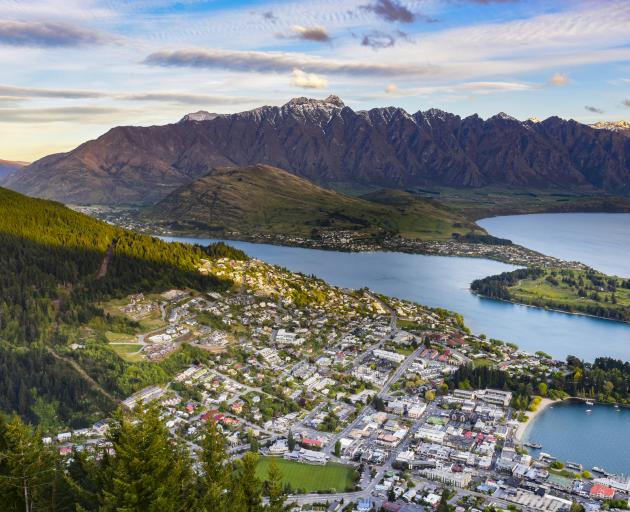
Medical director Carol Atmore reiterates comments made by Southern District Health Board acting clinical governance and quality executive director Hywel Lloyd in the Otago Daily Times on Monday.
Lloyd says while there’s no crystal ball to tell us when Delta will arrive in the South, ‘‘every day when we don’t have a day with Covid is a day where we can keep planning to be prepared’’.

After a person develops symptoms they’ll get a swab and then self-isolate at home till the results come back 24 to 48 hours later.
If the test’s positive, they’ll be contacted by Public Health South for contact-tracing, but there’ll also be welfare checks to make sure they’ve got everything they need, she says.
‘‘Have you got all your medication? Have you got enough food? Are you OK for money?
‘‘You could have a horse that needs to be fed — the welfare piece is quite broad, what do you need to keep well?’’
The welfare response will be handled on the ground in Queenstown, while the individual will fall into either Covid Care 1 or 2 categories.
Atmore expects the majority will fall into the latter — being over the age of 40, or having an underlying condition automatic ally qualifies for CC2, for example.
In that scenario, the individual will have daily video chats or phonecalls with their GP or nurse, and be delivered a pulse oximeter to measure their heart rate and oxygen levels.
Under CC1, the person would have calls or video chats every second day.
Generally, a double-vaccinated person will have to stay at home for 10 days from the onset of symptoms, but be ‘‘well’’ for three days before they can leave.
For unvaccinated people, they must stay at home for 14 days from the onset of symptoms and be well for three days at the end.
‘‘If you’re double-vaccinated, the great likelihood is that you’ll feel like you’ve got a cold or a flu, you’ll get better and go on your merry way.
‘‘Your chances of ending up in hospital are 10 times less by being double-vaccinated.’’
However, if a person’s oxygen levels dropped to the point they needed hospital care, they would be transferred by St John to Dunedin Hospital.
At present, Lakes District Hospital isn’t factoring in for Covid care — initially, at least.
‘‘But as it moves from being sporadic cases to, potentially, more widespread through the community, how we approach that may change with time.’’
Atmore says people should have enough food and meds at home for at least two days, practise good hygiene, and ‘‘don’t panic’’.
‘‘Particularly if you’re double-vaccinated, the chances you’re going to get really sick with this are definitely [lower].’’
Lakes District not factoring into Covid care, yet
Covid patients in the Queenstown-Lakes requiring hospital-level care will be transferred to Dunedin Hospital via ambulance under strict infection, prevention and control protocols, or by chopper, if required.
The SDHB's Hywel Lloyd says the seventh floor of Dunedin Hospital has been set aside for Covid patients, and while he won’t reveal exactly how many beds there are there, he says the hospital has ‘‘a phased plan to in crease the number of beds on the medical wards and ICU as and when they are required’’.
Lloyd also says some Covid patients will be admitted to rural hospitals if their main reason for being in hospital isn’t Covid-related, if they’re awaiting transfer to Dunedin Hospital, or ventilatory support isn’t part of the care plan.
But that could change if the number of cases requiring hospitalisation in the South rises fast, he says.












